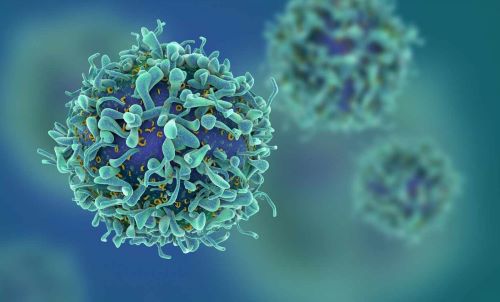CPI Partners with University of Leeds for producing a New Polio Vaccine
 CPI today announced a new project with multiple stakeholders to develop a low-cost, scalable manufacturing process for a new, non-infectious, stable vaccine against poliovirus. CPI is supporting the development of a manufacturing platform that aims to facilitate low-cost production and accessibility of this vaccine in low- and middle-income countries (LMIC), in some of which the disease is still prevalent.
CPI today announced a new project with multiple stakeholders to develop a low-cost, scalable manufacturing process for a new, non-infectious, stable vaccine against poliovirus. CPI is supporting the development of a manufacturing platform that aims to facilitate low-cost production and accessibility of this vaccine in low- and middle-income countries (LMIC), in some of which the disease is still prevalent.Poliovirus can infect the nervous system of children, with one in 200 infections leading to irreversible paralysis. Although the oral vaccine has been very successful in dramatically reducing the number of cases, outbreaks of paralytic polio still occur. These are complicated by the presence of both wild type virus and virus that has been derived from the oral polio vaccine. Although many countries are using an inactivated vaccine, this is still made from virus and therefore has biosafety concerns. We therefore need a new vaccine for the future which is both safe to make and to use.
This project supports development of a new virus-like particle (VLP) polio vaccine manufacturing platform which will create a cheap, scalable and robust vaccine production system. Developed by researchers at the University of Leeds (funded by WHO, in partnership with the Universities of Oxford, Reading and Florida, the National Institute for Biological Standards and Control, the Pirbright Institute and the John Innes Centre), VLPs are empty protein shells that are produced using a yeast strain, Pichia pastoris. The VLPs mimic the poliovirus sufficiently to induce an immune response, but lack the genetic material needed for infectivity. As such, VLPs are considerably safer than conventional attenuated or inactivated vaccines.
To begin scaling up VLP production, CPI is leveraging its state-of-the-art facilities and manufacturing experience with Pichia pastoris. Through the use of ambr250, a multi-parallel bioreactor, CPI will enable the high-throughput development of the fermentation process required to produce VLPs, allowing the parameters of multiple fermentation processes to be screened simultaneously. This rapid exploration of the design space will offer a fully scalable, robust system for VLP polio vaccine production.
Lucy Foley, Director of Biologics at CPI said: “The VLP vaccine platform for polio shows great promise to replace the current inactivated vaccine with its inherent drawbacks, with a vaccine that has much lower biosafety risks. We are honoured to be able to provide our expertise in scaling up manufacturing to improve treatment accessibility and take the world one step closer to eradicating polio.”
This research is funded by the Department of Health and Social Care using UK Aid funding and is managed by the Engineering and Physical Sciences Research Council (EPSRC, grant number: EP/R013764/1) and delivered by the Future Vaccine Manufacturing Research Hub (FVMRH) at Imperial College London. The views expressed in this publication are those of the author(s) and not necessarily those of the Department of Health and Social Care.
The FVMRH is committed towards researching innovative and more cost-effective vaccines for populations in lower and middle-income countries (LMICs). The hub’s goal is to improve the way vaccines are manufactured, stabilised and stored in partnership with vaccine manufacturers from in Italy, India, Vietnam, Bangladesh, Uganda and China and translational research partners comprising of the National Institute for Biological Standards and Control (NIBSC), CPI and NHS Blood and Transplant.





















